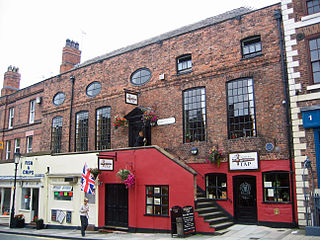Related Research Articles

Isaac Penington was an English politician who sat in the House of Commons from 1640 to 1653. He was Lord Mayor of London in 1642 and a prominent member of Oliver Cromwell's government.

Sir Richard Browne, c. 1602 to 24 September 1669, was a merchant and MP from London who became a Major general in the Parliamentarian army during the Wars of the Three Kingdoms. A moderate Presbyterian, after victory in the First English Civil War Browne supported a negotiated settlement in which Charles I retained his throne. As a result, he fell out with radicals such as Oliver Cromwell, and was excluded from Parliament by Pride's Purge in December 1648.

Sir Thomas Meautys (1592–1649) was an English civil servant and politician who sat in the House of Commons between 1621 and 1640.

George Kekewich was an English politician who sat in the House of Commons in the 1640s. He supported the Parliamentarian side during the English Civil War.
Simon Snow was an English politician who sat in the House of Commons of England from 1640 to 1648. He supported the Parliamentarian side during the English Civil War
Sir Thomas Barnardiston, 1st Baronet was an English baronet, landowner, soldier and MP who sat in the House of Commons at various times between 1640 and 1659. He fought on the Parliamentary side in the English Civil War.

Richard Shuttleworth (1587–1669) was an English politician who sat in the House of Commons variously between 1640 and 1659.

Sir John Harrison of Balls Park, Hertfordshire was an English politician who sat in the House of Commons variously between 1640 and 1669. He supported the Royalist side in the English Civil War.
Sir Roger Jaques was an English merchant and politician who sat in the House of Commons in 1640.
William Jesson was an English dyer and politician who was active in local government in Coventry and sat in the House of Commons between 1640 and 1648.
John Barker was an English draper and politician who sat in the House of Commons between 1640 and 1653. He supported the Parliamentary side in the English Civil War.
Sir Beauchamp St John was an English politician who sat in the House of Commons variously between 1621 and 1653. He supported the Parliamentary side in the English Civil War.
Thomas Atkins was Lord Mayor of London and an English politician who sat in the House of Commons in 1640 and from 1647 to 1653 and was Lord Mayor of London in 1644. He supported the Parliamentary cause in the English Civil War.
Robert Beake was an English politician who sat in the House of Commons variously between 1654 and 1679. He supported the Parliamentary cause in the English Civil War.
John Nutt was an English politician who sat in the House of Commons from 1640 to 1653. He fought on the Parliamentary side in the English Civil War.
Thomas May was an English politician who sat in the House of Commons from 1640 to 1642. He supported the Royalist cause in the English Civil War.

Sir Francis Gamull, 1st Baronet (1606–1654) was an English politician who sat in the House of Commons from 1640 to 1644. He supported the Royalist side in the English Civil War and was active in the defence of Chester.
George Gallop (1590–1650) was an English politician who sat in the House of Commons at various times between 1625 and 1650. He supported the Parliamentary cause in the English Civil War.
Edward Herle was an English politician who sat in the House of Commons at various times between 1640 and 1689. He fought in the Parliamentary army in the English Civil War.
William Farrington was an English politician who sat in the House of Commons in 1640. He supported the Royalist cause in the English Civil War.
References
- ↑ Carlyle Letters Archived 21 July 2011 at the Wayback Machine
- 1 2 'The city of Cambridge: Parliamentary representation', A History of the County of Cambridge and the Isle of Ely: Volume 3: The City and University of Cambridge (1959), pp. 68-76. Date accessed: 9 June 2011
- 1 2 Willis, Browne (1750). Notitia Parliamentaria, Part II: A Series or Lists of the Representatives in the several Parliaments held from the Reformation 1541, to the Restoration 1660 ... London. pp. 229–239.
- ↑ Charles Henry Cooper Annals of Cambridge
- ↑ 'The University of Cambridge: The early Stuarts and Civil War', A History of the County of Cambridge and the Isle of Ely: Volume 3: The City and University of Cambridge (1959), pp. 191-210. Date accessed: 9 June 2011
- ↑ Thomas Wright; Harry Longueville Jones (1841). "Parish of St Sepulchre". The universities. Le Keux's Memorials of Cambridge. Vol. 1. Tilt and Bogue, Fleet Street.